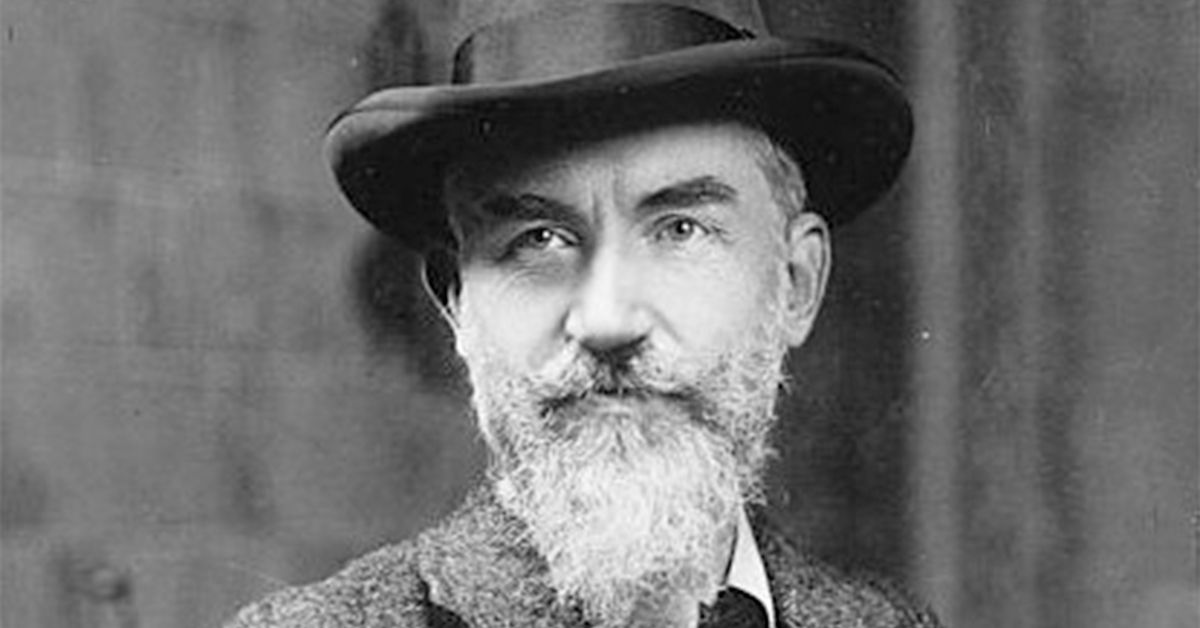George Bernard Shaw (1856-1950) was one of the most fascinating intellectual figures of both the 19th and the 20th centuries. A Nobel Prize-winning dramatist, literary critic, and socialist spokesman, he was also a vociferous advocate of such causes as women's rights, equality of income, the abolition of private property, a restructuring of the voting system, the simplification of
spelling, and the reform of the English alphabet.
Perhaps the lowest point of Shaw's remarkable career was the World War I era, when his scathing opposition to the war drew the ire of the British government and nearly resulted in his being tried for treason. Not surprisingly, Shaw responded to his critics with his pen, crafting the play now known as Heartbreak House, a devastating commentary on the "Great War" and a bitter and withering attack on the spiritually bankrupt generation responsible for it.
Shaw's sardonic wit was not restricted to the text of the play, however. The drama, Shaw's first new work in several years, was eagerly anticipated by a London theatre-going crowd finally freed from the
horrors of the long and bloody war with Germany. But Shaw, in a fit of churlishness brought on by anger over public criticism of his anti-war stance, mischievously titled his play Closed for Remodeling. Theatre owners who staged Shaw's new offering shook their heads in puzzled disbelief at the sparse crowds in attendance night after night. Finally, when the play was into the third week of its initial run (and two of the four London theatres staging it had already shut down their productions), a stage manager at the Savoy Theatre finally realized the problem: the playbills advertising Closed for Remodeling that had been posted all over town were leading patrons to believe the theatre was temporarily shut down for renovation.
The Savoy re-launched the play under the title Heartbreak House, and it has been known by that name ever since. Shaw himself professed innocence, of course, but there was little doubt that the results of his unfortunate choice of title were exactly what he had planned. As always, G.B. had the last laugh. (Fortunately, his play Quarantine remained unfinished at his death and was never produced.)
Additional information:

